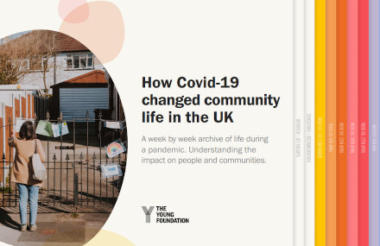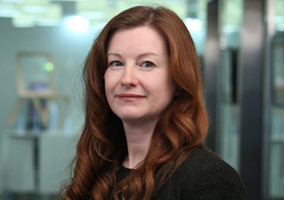People do not want to return to life as it was before lockdown and would like to be more involved in their community in the future, the Young Foundation has said.
The foundation has unveiled the findings from its Covid-19 & You programme, and has made seven key recommendations. These include recognising that people want to keep some of the positive community connections that came about during the crisis.
Earlier this year the foundation began working with the Open University on a project documenting every day life to better understand the social impact of the pandemic on communities across the UK. It received more than 600 contributions to its research project, and has now produced an interactive digital booklet.
Of those who participated, 75% were female and 25% male. Of the 600, 21% identified as key workers and 28% reported having a physical or mental health condition or illness.
The report's first recommendation is to urge policymakers to think about building a new normal with a stronger focus on communities.
It says: “The changes that have been possible during lockdown – from supporting the most vulnerable and coming together as communities, to working from home and valuing family more – have the potential to permanently shift the ways we live and work in the future.
Focusing on ‘getting life back to how it was’ fails to acknowledge the positive impacts of a crisis on our collective experiences. Are there different ways of building community and sustaining community life, and can these help build a strong case for a ‘new normal’ that puts community at its heart?”
Other recommendations
The foundation's recommendations are aimed at policymakers, government influencers and future researchers.
These include exploring ways to sustain community strength and engagement outside of times of crisis, putting well-being and mental health at the heart of all decision-making, and making space for social innovation.
The report says: “The speed at which employers, institutions and individuals were able to adapt to change has demonstrated what many working in social innovation already knew – that the best solutions often emerge as a result of having constrained resources, and clear unmet needs.
“There are now opportunities to further test and scale innovative approaches that ‘proved concept’ during lockdown. The fusion of local economic renewal with social value to tackle already serious challenges such as homelessness, care for people who need it and transitioning young people into work presents a pressing need for more support for social innovation, enterprise and support for mission-led businesses, as well as a burning platform for innovations such as basic income for retraining for a new, green economy.”
Helen Goulden, chief executive at the Young Foundation, said: “To better understand the short- and long-term impact of the pandemic on UK communities, we knew that we had to hear directly from people all over the country to understand what has been really happening.
“Listening to communities is essential to understanding what really works and what doesn’t in times of crisis. It is our hope that the recommendations included open the door to more engaged dialogue between decision-makers and communities, especially in this economically uncertain recovery period.”












